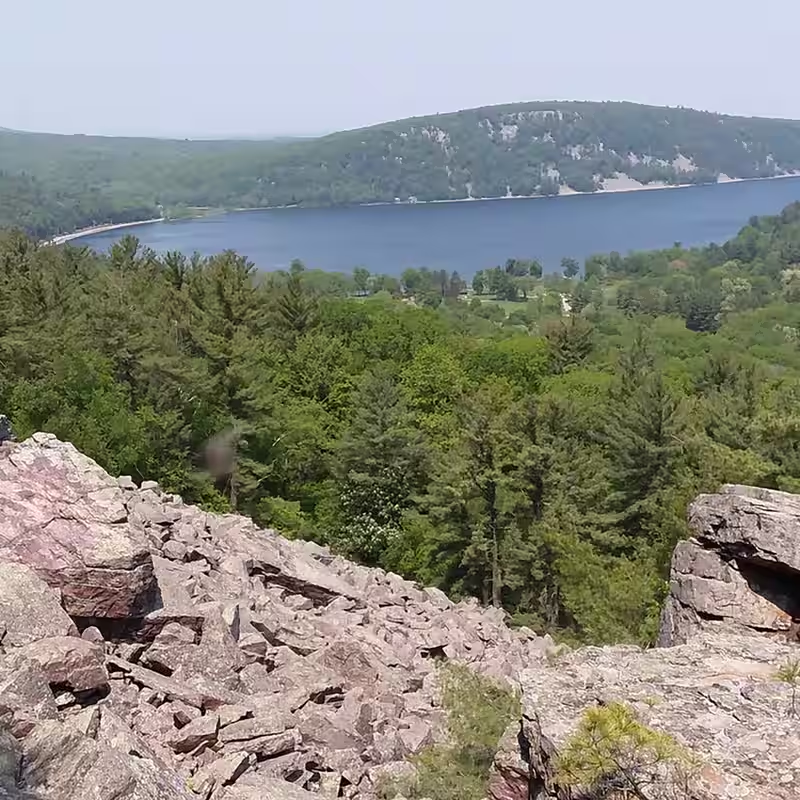Table of Contents
- What Happened at Devil’s Lake?
- Who Was the Climber?
- Rescue Efforts and Response
- Why Devil’s Lake Is a Climber’s Paradise
- The Park’s Strong Safety Record
- Climbing Safety Tips for All Ages
- Sources
What Happened at Devil’s Lake?
A tragic accident has shaken the outdoor community at Devil’s Lake State Park in Wisconsin. On Sunday morning, an 84-year-old man fell approximately 25 feet while rock climbing on the park’s West Bluff and died from his injuries before emergency responders could administer treatment. The incident, confirmed by local authorities on Wednesday, marks a rare fatality in one of the Midwest’s most popular climbing destinations .
Emergency crews were dispatched around 11:30 a.m. after receiving a report of a fall. Though the climber was still breathing when rescuers reached him, he lost his pulse moments later. “Our medics made access to him, but before we could get anything set up, he went pulse-less,” said Mark Willer, assistant chief of the Baraboo Area Fire and E.M.S. District .
Who Was the Climber?
The identity of the climber has not been released by officials, in accordance with family privacy requests. What is known is that he was part of a climbing group, though the size and composition of the party remain undisclosed. His age—84—has drawn attention to the growing number of older adults participating in high-adrenaline outdoor sports like rock climbing.
Rescue Efforts and Response
Responders launched a high-angle rope rescue operation, a specialized technique used to reach climbers stranded on steep or vertical terrain. The Baraboo Area Fire and E.M.S. District maintains a dedicated team trained for such scenarios. This year alone, they’ve conducted five high-angle rescues, including one in May when a climber fell 20 feet and was airlifted to a hospital .
Why Devil’s Lake Is a Climber’s Paradise
Devil’s Lake State Park, located about 37 miles northwest of Madison, spans over 10,000 acres and draws more than 2.5 million visitors annually. Known for its quartzite bluffs and scenic overlooks, the park offers over 1,000 established climbing routes, ranging from beginner slabs to expert-grade cracks and overhangs .
The West Bluff Trail—where the accident occurred—is rated moderate to difficult. It climbs more than 400 feet through wooded terrain with exposed ledges and dramatic drop-offs, offering panoramic views of the 360-acre lake below.
The Park’s Strong Safety Record
Despite its rugged terrain, Devil’s Lake has an impressive safety record. “Climbers who come to Devil’s Lake are historically the safest people out there,” said Willer. He noted that his department receives only “a handful” of calls related to climbing incidents each year—a testament to the community’s experience and preparation .
| Year | High-Angle Rescues at Devil’s Lake | Fatalities |
|---|---|---|
| 2025 (as of Oct) | 5 | 1 |
| 2024 | 4 | 0 |
| 2023 | 6 | 0 |
Climbing Safety Tips for All Ages
While rock climbing remains a relatively safe activity at Devil’s Lake, this incident is a sobering reminder that risk exists at any age. Experts recommend the following:
- Always climb with a partner and ensure someone knows your route.
- Use proper gear—helmets, harnesses, and ropes should be in good condition.
- Assess your physical limits, especially for older climbers or those with health conditions.
- Check weather conditions—wet rock drastically increases fall risk.
- Know emergency protocols and carry a charged phone or satellite communicator.
For more information on climbing safety, visit the Wisconsin DNR’s Devil’s Lake page or the Access Fund’s safety resources.




